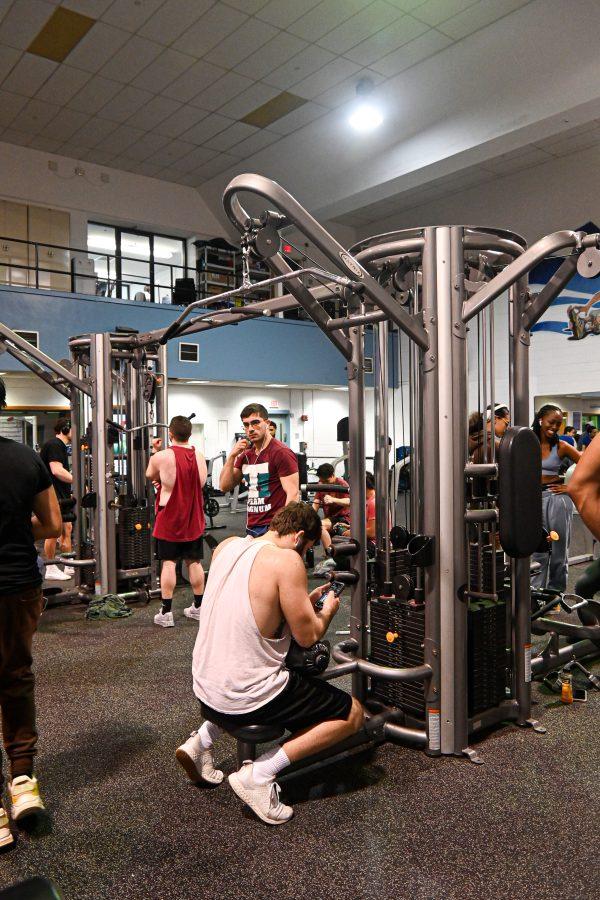Along with the rest of the U.S., I often find myself looking for ways to improve in the new year. However, when the end of January rolls around, I seem to have lost track of all the goals I set for myself. These failed plans always end up making me feel worse about what I didn’t accomplish even when the whole goal was to make myself better.
Now, this cyclical occurrence might just have to do with my horrible memory, but I think it’s a feeling many can relate to.
This journey of self-improvement originally started when I discovered Kalyn Nicholson on YouTube in 2017. Since then, every September as the school year began and every January when the new year started I decided that I needed to get it together. I decided that my life as it was wasn’t good enough, and it needed to change.
Now let me ask you: What 14-year-old needs to get their life together? At 14, I was struggling with several undiagnosed mental illnesses while navigating freshman year of high school. Yet everyday after school, I watched video after video trying new habit after new habit trying to make something stick. The last thing I needed to do was worry about my productivity levels. What I really needed was psychiatric testing and therapy.
Eventually I got there, but that was after my mental illness got worse due to the fact that I wasn’t as good at school as my friends. This was, again, out of my control due to mental illness. This loop turned into some kind of sick corkscrew just spiraling down and down until I eventually got professional help.
The cycle never really stopped. Even after years of therapy, I was still motivated to change at the beginning of the semester until the motivation ran dry. Then again at the start of the new year, over and over again. The effect that this cycle had on me didn’t really hit me until the start of this year.
I was watching productivity videos on YouTube, as was customary for this tradition. After a few weeks of watching these videos and trying out new habits, scavenging for anything that would make my life better, I stumbled upon a video by Rowena Tsai, titled “why you don’t need to get your life together.”
I almost scrolled right past it, scoffing. “Of course I need to get my life together,” I thought to myself. But something about that title was weighing on me, so I clicked it. This YouTuber was someone I frequently watched because she posted the kind of productive lifestyle content I craved. I knew she would have something interesting to say but I didn’t realize quite how much it would affect me.
In her video, she describes how “getting your life together” is a phrase everyone seems to relate to. Everyone’s life is a little messy. We all feel disorganized with cluttered spaces and filled inboxes. Everyone sees this mess as a huge problem. “We are broken and need to be fixed” is essentially what that phrase is telling us.
She says, “It’s good to want to work on yourself [and] awareness is the biggest step. I just want us to be mindful of how we talk to ourselves. To feel like you need to get your life together, to feel like you need to work on yourself, to feel life you need to do all of this inner work […] means that you are unhealed, that you are not whole to begin with” (1).
That line hit for obvious reasons. After being on this constant road of self-improvement I never considered the fact that maybe I am fine the way I am. Maybe I don’t need to make all of these major changes that will eventually fall through in the name of getting my life together. My life already is together.
After journaling and a couple conversations with my therapist, I realized what I needed to work on wasn’t my productivity like I always thought. I don’t exist to be a machine churning out new work over and over again. Instead, I need to focus on what makes me feel better in the long run.
Now, instead of watching meaningless YouTube videos about productivity by people who don’t relate to me, I found books about topics that I want to work on for myself. For example, “The Book of Boundaries” by Melissa Urban, as I mentioned in my last article.
Life is a constant journey of discovering and rediscovering yourself, so don’t make it harder on yourself by trying to be “together” all the time. It’s okay to want to work on yourself, but make sure you aren’t trying to “fix” yourself. You don’t need to be fixed because you are already whole.
Sources:





















































